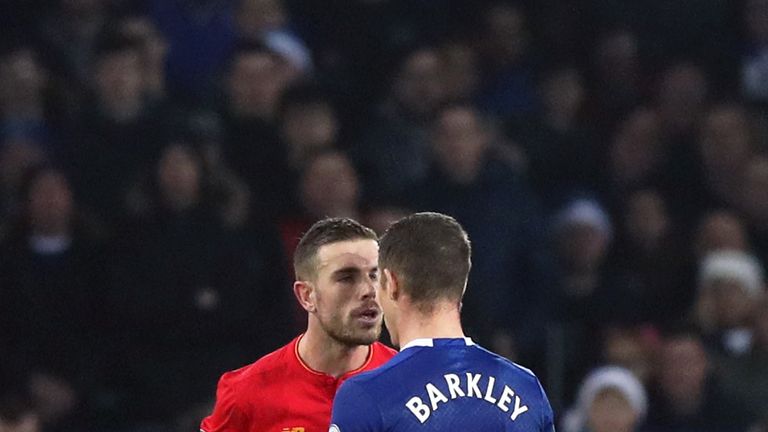The Sky Sports Premier Predictor explained - What does it do and how does it work?
Tuesday 24 January 2017 17:35, UK
Every week, we bring you the Sky Sports Premier Predictor - but what does it do and how does it work? We explain all...
So what does it do?
The Premier Predictor predicts the chances of a home win, away win or draw in Premier League matches, and how likely a team is to win the league, reach the top four or get relegated.
Can I use it to make millions beating the bookies?
Back-testing it over previous seasons show it would have made a small profit against the bookies. But don't bet your house on it - there's no guarantee that it will continue to do so, though we're constantly working to make sure it is as accurate as possible.
How does it work?
It's based on a system called Elo, originally set up to rate chess players.
It takes into account form, who your team still has left to play, and how well a team has done in previous seasons.
But it's a little bit different - amongst other things, Elo doesn't like predicting draws, so it's been tweaked a bit to allow for a hard-fought nil-nil.
Take us through the nitty gritty.
Each team is rated according to their accumulated points. The average team has 500 points.
The points roll over between seasons, but are regressed halfway towards the mean - that is, top teams' scores from the end of the season are pulled back a bit and struggling teams' scores are pushed up a bit.
Wait, what about promoted teams?
We have the same system working in the Sky Bet Championship, League One and League Two. Each division is considered half as strong as the division above, so when a team is promoted from the Championship, it starts the following Premier League season with half the points they ended their Championship with season with, regressed to the mean.
Promoted teams from the Conference start the following League Two season with half the points left by the two relegated teams, regressed to the mean.
Okay, continue.
In each match, teams are competing to take points off each other. The home team put 5% of the points into the pot, while away teams contribute 3% of their points.
Is that to take into account home advantage?
Exactly - so if you win away you gain more points than if you were at home.
And do you get more points for winning by a bigger margin?
You do. If a team wins by three or more goals, you get the full pot.
If they win by two goals they get 90% of the pot, 70% if they win by one goal, and the pot is split evenly if they draw.
It looks like sometimes teams don't gain points despite winning games. What gives?
Basically, the Premier Predictor isn't that impressed when, say, a high ranked team beats a lower ranked team by a single goal at home.
The Predictor already expects them to win - so they have to not only win, but win well to gain points.
On the other hand, a lower ranked team gains more from beating a top team than a fellow struggler.
So how are these scores used to predict matches?
The predictions are based on analysis of the relationship between the scores and match results.
What about injuries, transfers, manager changes, etc?
It doesn't know anything about that - either within matches or across a season.
Instead, it waits for evidence - if a player or manager arrives to great fanfare, it will only take that into account when they start winning more matches as a result - and vice versa for injuries, suspensions, etc.
And how exactly do the league predictions work?
It runs ten thousand simulated seasons and see what proportion of the time each team finishes in which position.
I have more questions!
Talk to our stats man Harry Carr on Twitter at @harrydcarr





